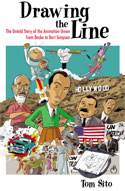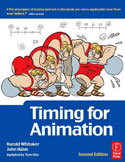|
August 3, 2022 August 3rd, 2022 |
|
Quiz: What is a Ouija board?
Yesterdays’ question answered below: What is an autodidact?
----------------------------------------------------------------
History for 8/3/2022
Birthdays: British Prime Minister Stanley Baldwin, Elisha Otis inventor of the elevator, John T. Scopes- the teacher accused in the Monkey Trial, Habib Bourguiba, Ernie Pyle, Gene Kelly, Lenny Bruce, John Landis, Jay North, Dolores Del Rio, Leon Uris, Ann Klein, Martha Stewart, Corey Burton, Martin Sheen is 82, John C. McGinley is 63, Tony Bennett is 96
Happy National Mustard Day
216 B.C. THE BATTLE OF CANNAE. Hannibal's defeat of a much larger Roman army in Italy is one of the great pieces of strategy still studied today. This victory annihilated the top Roman leaders and left nothing between Hannibal and the gates of Rome. Yet Hannibal uncharacteristically hesitated. His cavalry commander Mago snarled:" You know how to win battles, but not a war." The Romans recovered, eventually drawing him off to Africa to protect his home city Carthage, where he was finally defeated by Scipio Africanis.
48 B.C.-Battle of Pharsalia- Julius Caesar decisively defeated his rival Pompey Magnus in northern Greece to become undisputed leader of Rome.
1305- Scots warrior William Wallace was betrayed to the English and captured while visiting the Glasgow house of a man named Robert Roe.
1347- THE BURGHERS OF CALAIS- When King Edward III attacked France to press his claim for its throne, the first city he attacked was the port city of Calais. After a long vicious siege, the leaders of Calais agreed to surrender. England kept Calais for 250 years. The king wanted to hang the burghers (city leaders) because of their stubborn resistance, but they were spared after pleas of mercy from Edward’s Queen. August Rodin created a beautiful statuary group the Burghers of Calais. The six men loaded down with chains and ropes around their necks, defiance still radiating in their faces, are a symbol of resistance for all oppressed peoples.
1460- Scottish King James II “Fire Face” had a thing for cannon. He imported a number of the newfangled things from Flanders to blow holes in his enemy’s castles. This day, he was besieging the castle of Roxburgh, when a cannon he was firing blew up in his face and killed him. Ouch!
1492- One half hour before dawn, Christopher Columbus set sail from Palos, Spain on the Nina, Pinta and Santa Maria. This was the first of four voyages in search of the Indies. He took a linguist fluent in Turkish, Sanskrit and Hebrew to speak to any natives they might encounter.
1529- The Ladies Peace of Cambrai- The King Francis I of France and German Emperor Charles V fought a series of bloody wars over who controlled Italy. Their hatred was so extreme that they even considered a personal duel. Nothing seemed to solve this feud, and Europe was being wrecked. Finally, Francis’ mother Louise of Savoy and Charles’ aunt Margaret of Austria, met without their permission and concluded a peace treaty without them.
1553- Mary Tudor the eldest daughter of the late King Henry VIII entered London in triumph. The schemes and corruption of the Duke of Somerset regency had been such a mess that even Protestant London was glad to have a real queen, even if she was Catholic. People brought out tables of food, danced and celebrated all night.
1610 - Englishman Henry Hudson with the Dutch fleet discovered a great bay on the Northeast coast of Canada and named it for himself- Hudson’s Bay.
1745- Bonnie Prince Charlie stepped on the soil of Scotland- at Arisca in the Hebrides. When a frightened Scottish lord asked him to go home, Charles Stuart replied:” But I am home.” The English Parliament offered a reward of 30,000 pounds for his arrest. So began the Great Highland Uprising, the last great campaign on British Soil.
1769- Spanish explorer Gaspar de Portola made the first-ever recorded mention of the La Brea "tar pits" in Los Angeles: "The 3rd, we proceeded for three hours on a good road; to the right of it were extensive swamps of bitumen which is called chapapote. We debated whether this substance, which flows melted from underneath the earth, could occasion so many earthquakes.”
1807- Former Vice President Aaron Burr was arrested for treason. President Jefferson accused him of plotting to make himself dictator of a republic in newly acquired Louisiana territory and conquering Texas for himself.
1823- English Poet Lord Byron arrived in Greece, burning with a desire to help the Greeks attain independence.
1852- The first Harvard-Yale boat race.
1858- British explorer John Speeckes discovered Lake Victoria Nyanza, the source of the Nile River. The question of the Nile's origins had become a cause celebre among British explorers and debate raged fiercely. Speeckes was traveling with famed Orientalist Richard Burton, translator of the Arabian Nights stories, but Burton absented himself from the last leg of the journey because he was weak with malaria. He regretted this decision for the rest of his life and grew to hate Speeckes. Speeckes and Burton began a feud that may or may not have contributed to Speeckes accidental suicide in 1864.
1882- Congress passed the first Immigration Act, trying to restrict what had been an open door policy since the Pilgrims. But the act had a heavy European bias. Chinese immigrants were banned for ten years.
1916- Sir Roger Casement was hanged for treason. Casement was an Anglo-Irish patriot who arranged with Germany to smuggle guns to Dublin for the Irish Easter Sunday Uprising. He also exposed human rites violations done by the Belgians in the Congo and against Indigenous tribles in Peru. He had been called the “Father of Twentieth Century Human Rights Investigators.” After his conviction, many leading English intellectuals like Sir Arthur Conan-Doyle and George Bernard Shaw urged mercy for Casement. But the government published his “black diaries” taken from his home that proved he was gay. All the bad publicity silenced the mercy movement, and Sir Roger went to the gallows.
1921- The first aerial crop dusting in Troy, Ohio to kill caterpillars.
1933- The first Mickey Mouse watches go on sale. For $2.95 each.
1935- Mickey’s Fire Brigade, directed by Ben Sharpsteen.
1936- Jesse Owen’s won gold in the 100m dash at the Berlin Olympics.
1943- In Sicily, Gen. George Patton while touring a field hospital encountered a Pvt. Herman Kuhl. Private Kuhl wasn't physically wounded, but suffering from dysentery, malaria and PTSD. But all he could say to the general was he was nervous. Patton angrily accused him of cowardice and slapped him down. Then he kicked him out of the tent. Allied High Command ordered Patton to apologize to Kuhl and the entire army, then recalled him to England. He would have no part in military actions until after D-Day, to the amazement of the Nazi generals. They thought it was some kind of allied trick to fool them.
1948- Now that Baseball was finally integrated, Satchel Page, genius of the Negro Leagues, makes his belated Major League debut with the Cleveland Indians. A 45 year old rookie. Page once said:" Don't look back, something may be gaining on you."
1948- Time Magazine editor Whittaker Chambers publicly denounced a top Truman presidential aide Alger Hiss of being a Russian spy. Alger Hiss was a protégé of both Franklin Roosevelt and Chief Justice Oliver Wendell Holmes Jr. The Hiss investigation eventually convicted Hiss of espionage based on the 'pumpkin papers', incriminating documents on microfilm Chambers said were found hidden in a pumpkin. The senate investigation shot to national prominence a new young congressman named Richard Nixon.
1949 -The National Basketball League is founded.
1958 – USN nuclear submarine Nautilus crossed the North Pole under the icecap.
1961- The first airline hijacked to Cuba.
1963 –Unemployed television producer Alan Sherman released an album of comedy songs at the request of his friends. Called “My Son the Folksinger” it contained the hit “Hello Muddah, Hello Fadduh, Here I am at, Camp Granada” and became an overnight sensation.
1966- While celebrating his 39th birthday, Comedian Lenny Bruce died of a morphine overdose. The groundbreaking comedian who coined the term “T & A” was arrested in 1964 and charged with obscenity for using the "F" word in his act. President Johnson and his opponent Senator Barry Goldwater would swear frequently in private, but comedians were only supposed to make mother-in-law jokes.
.Lenny Bruce did six months in jail, and left broken physically and financially. No club would dare hire him. Phil Spector said: “ Lenny died of an overdose of cops” Yet he is the model for all modern stand-up comedy.
1975- The Louisiana Superdome stadium was dedicated. The first dome stadium.Some football coaches like Mike Ditka of the Chicago Bears were skeptical:” Football is meant to be played in snow and mud. Dome stadiums are for Roller Derby!”
1981- U.S. Air traffic controllers (PATCO) go on strike despite Pres. Reagan's warning they would be fired. Reagan was once president of the Screen Actor’s Guild. Ironically the only U.S. President who has ever been a labor leader, was the most union-busting president of all time.
1996- The Macarena, by Los Del Rio, becomes the #1 hit worldwide dance craze.
2012- At the London Olympics, swimmer Michael Phelps won his final race. That made his total earning 22 Olympic medals, 17 of them gold.
--------------------------------------------------------------------------------------------
Yesterday’s Quiz: What is an autodidact?
Answer: A self-educated person. Someone who overcompensates for the lack of a formal education. Famous autodidacts include Orson Welles, Charlie Chaplin and Walt Disney.

|




